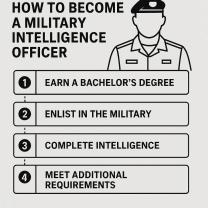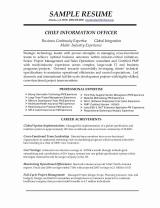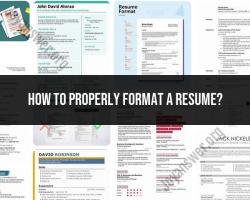How do you become Operations Manager?
Becoming an operations manager involves a combination of education, relevant work experience, and the development of key skills. Here's a step-by-step guide on how to become an operations manager:
1. Educational Background:
- Bachelor's Degree: Many operations managers hold a bachelor's degree in business administration, operations management, supply chain management, or a related field.
- Specialized Degrees: Some operations managers pursue specialized degrees, such as a Master of Business Administration (MBA) with a focus on operations management.
2. Gain Relevant Work Experience:
- Entry-Level Positions: Start your career in entry-level positions within operations, administration, or related areas. Positions such as operations coordinator, logistics coordinator, or project assistant can provide a foundation.
- Progressive Experience: Move on to roles with increasing responsibility, such as operations supervisor, team leader, or assistant manager.
3. Develop Key Skills:
- Leadership Skills: Operations managers need strong leadership skills to guide teams and make strategic decisions.
- Analytical Skills: Develop analytical abilities to assess processes, identify inefficiencies, and make data-driven decisions.
- Communication Skills: Effective communication is crucial for conveying directives, collaborating with teams, and presenting findings to senior management.
- Problem-Solving Skills: Operations managers must be adept at identifying and solving complex problems to enhance efficiency.
- Organizational Skills: Strong organizational skills are necessary for managing multiple tasks, projects, and deadlines simultaneously.
4. Acquire Industry-Specific Knowledge:
- Industry Experience: Gain experience within the specific industry in which you aim to become an operations manager. Understanding industry-specific processes and challenges is valuable.
- Stay Informed: Keep abreast of industry trends, regulations, and best practices to stay relevant and effective.
5. Networking and Professional Development:
- Networking: Attend industry events, conferences, and networking functions to build relationships with professionals in your field.
- Professional Organizations: Join relevant professional organizations related to operations management, such as the Association for Operations Management (APICS) or the Institute for Operations Research and the Management Sciences (INFORMS).
6. Pursue Advanced Degrees and Certifications (Optional):
- Master's Degree: While not always required, pursuing a master's degree, such as an MBA with a focus on operations management, can provide additional qualifications.
- Certifications: Consider obtaining relevant certifications to enhance your skills and credibility. Certifications such as Certified in Production and Inventory Management (CPIM) or Project Management Professional (PMP) can be beneficial.
7. Demonstrate Leadership and Initiative:
- Take on Leadership Roles: Volunteer for leadership opportunities within your organization to showcase your leadership abilities.
- Initiative: Demonstrate initiative by proposing and implementing process improvements or efficiency measures in your current role.
8. Build a Strong Resume:
- Highlight Achievements: Showcase your achievements, responsibilities, and relevant experiences on your resume.
- Tailor Your Resume: Tailor your resume to emphasize your skills and accomplishments related to operations management.
9. Seek Mentorship:
- Mentorship: Seek mentorship from experienced operations managers or senior leaders within your organization.
- Learn from Others: Learn from the experiences and insights of those who have successfully climbed the career ladder in operations management.
10. Job Search and Career Advancement:
- Search for Positions: Look for operations management positions that align with your skills and career goals.
- Career Advancement: Consider taking on progressively challenging roles and seek opportunities for career advancement within your organization or through external job opportunities.
Remember that the specific requirements for becoming an operations manager can vary depending on the industry, company, and region. It's essential to stay adaptable, continuously develop your skills, and remain proactive in seeking opportunities for growth and advancement in your career.
Mastering the Operations Game: Your Guide to Becoming an Operations Manager
The fascinating world of Operations Management offers strategic challenges and the satisfaction of directly impacting organizational success. So, how do you become an efficient conductor of this complex orchestra? Let's explore the steps, qualifications, and skills needed to ace your first chair audition!
1. Steps to Becoming an Operations Manager:
- Chart your educational path:
- Bachelor's Degree: A bachelor's degree in business administration, management, operations management, or a related field lays a strong foundation. Consider options like industrial engineering or supply chain management for specialized knowledge.
- Master's Degree: While not always necessary, an MBA or a specialized master's in operations management can boost your competitiveness, especially for senior positions.
- Gain relevant experience:
- Internships: Seek early exposure to the field through internships in operations departments or related functions like logistics, inventory management, or project management.
- Entry-level positions: Start your career ladder climb in roles like operations assistant, production coordinator, or quality control specialist.
- Cross-functional experience: Broaden your perspective by exploring different business areas for a holistic understanding of organizational operations.
- Develop essential skills:
- Analytical and problem-solving: Think critically, identify inefficiencies, and design impactful solutions.
- Organizational and planning: Master resource management, project planning, and deadline juggling.
- Communication and leadership: Build strong relationships with team members, stakeholders, and clients, inspiring and motivating them.
- Technical skills: Proficiency in relevant software, data analysis tools, and project management technologies is a valuable asset.
- Adaptability and resilience: Be prepared to navigate changing priorities, market dynamics, and unforeseen challenges.
2. Education and Experience Requirements:
Formal education, while crucial, is not the sole measure of success. Many organizations value relevant experience and demonstrate flexibility for candidates with strong skill sets and proven expertise. However, generally:
- Most positions: Require at least a bachelor's degree in a relevant field.
- Senior positions: Often prefer candidates with an MBA or equivalent experience.
- Industry-specific roles: Might require additional certifications or specialized knowledge.
3. Enhancing Your Qualifications:
- Professional certifications: Consider earning certifications like Certified Supply Chain Professional (CSCP) or Certified Operations Production Manager (COPM) to demonstrate your expertise and commitment to the field.
- Continuous learning: Attend industry events, workshops, and conferences to stay updated on trends and best practices.
- Networking: Build connections with experienced professionals in the field to gain insights and access mentorship opportunities.
Remember: The path to becoming an Operations Manager is not a rigid one. Focus on building a strong foundation of knowledge, gaining relevant experience, and developing essential skills. Be adaptable, stay curious, and continuously upskill yourself to navigate the dynamic world of operations with confidence.
I hope this guide helps you orchestrate your journey to operational excellence!













